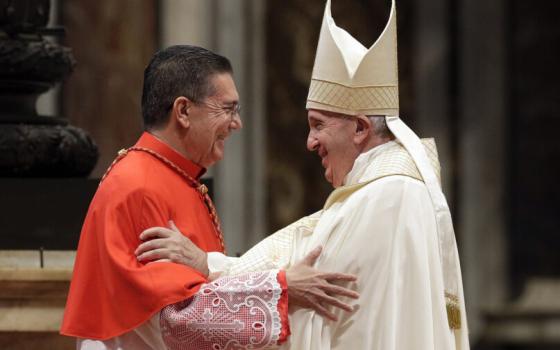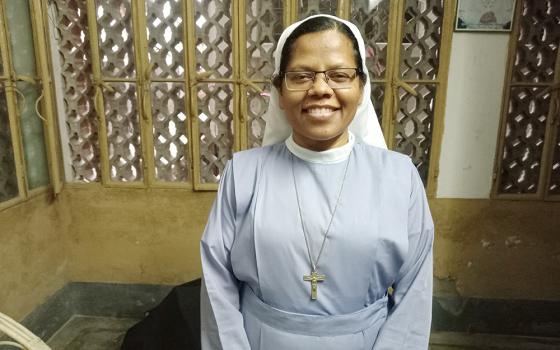A proposal by the Trump administration to deny green cards to legal immigrants using public assistance "will dramatically change the process of legal migration and make it increasingly difficult for low-income and working-class individuals to legally migrate to the United States."
That's the view of the U.S. Conference of Catholic Bishops and Catholic Charities USA according to comments they filed in response proposed revisions to what is called the "public charge" rule.
They urged the Department of Homeland Security to abandon the proposed rule and return to "the current and long-standing interpretation of public charge" and laid out several reasons for opposing the rule change.
It will "undermine family unity and stability," will "harm low-income and working-class families and "have a negative impact on the social safety net."
"The rule will have severe consequences for public health and is detrimental to larger families," they said. "The rule proposes a definition of 'public charge' and 'public benefit' that is arbitrary and will make people less self-sufficient ... and proposes a public charge scheme that will create grounds to deny virtually every immigration application."
The full text of the 447-page proposal, which is titled "Inadmissibility on Public Charge Grounds," is published on the Department of Homeland Security's website and can be found here.
When it was announced, a DHS news release said the proposal aims to "clearly define long-standing law to ensure that those seeking to enter and remain in the United States either temporarily or permanently can support themselves financially and will not be reliant on public benefits."
Federal law has always required those seeking green cards -- permits allowing immigrants to live and work permanently in the U.S. -- to prove they will not be a burden to the U.S. government, but it has never considered the use of public benefits, such as food stamps or housing vouchers, in its decision to issue the cards.
The action could force millions of immigrants who rely on public assistance for food and shelter to choose between accepting financial help in the form of Medicaid, food stamps, housing vouchers or other forms of public assistance, or seeking a green card to live and work legally in the United States.
"Public charge refers to one factor considered in the process of admitting individuals into the United States or allowing immigrants to adjust their status and become a lawful permanent resident," the USCCB and Catholic Charities said in a Dec. 3 news release.
"For many years the public charge analysis focused on the receipt of public cash assistance or long-term hospitalization, or similar care, which made an individual financially dependent on the government," they said. "Food and housing assistance were not considered."
Advertisement
When the proposal was announced in late September, the chairmen of two USCCB committees said the administration's action "undercuts decades of administrative policies and guidelines on how immigrants are treated by the United States government."
Bishop Joe Vasquez of Austin, Texas, chair of the U.S. bishops' Committee on Migration, and Bishop Frank Dewane of Venice, Florida, chair of U.S. bishops' Committee on Domestic Justice and Human Development, said the proposed rule "further compounds strict eligibility guidelines already in place preventing many immigrants from receiving federal aid."
They said that in an "initial analysis" of the just-release proposed rule "it appears that this will be very harmful to families, raising fear among immigrant families already struggling to fulfill the American Dream."
They also said the action was likely to "prevent families from accessing important medical and social services vital to public health and welfare."
Jeanne Atkinson, the outgoing executive director of the Catholic Legal Immigration Network, said the administration had sunk "to a new level of cruelty with this proposal to punish immigrants who use government assistance to feed, provide medical care for and house their families."
The proposed rule was published in the Federal Register Oct. 10, with a 60-day comment period to end Dec. 10. After that, the administration will take the feedback it receives into consideration is issuing its final rule.






